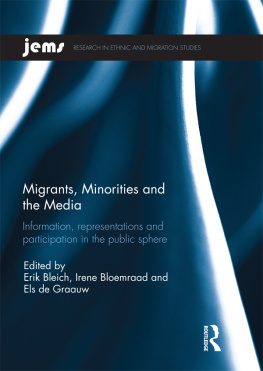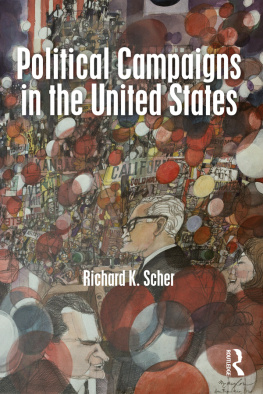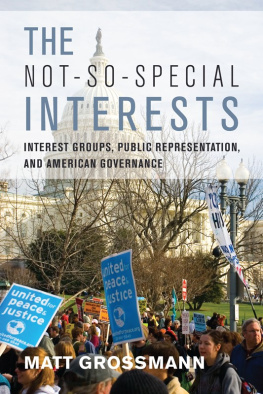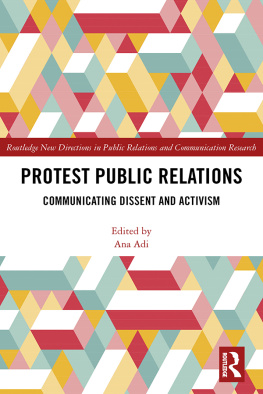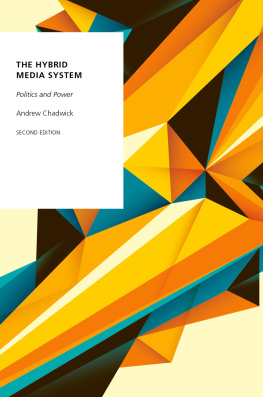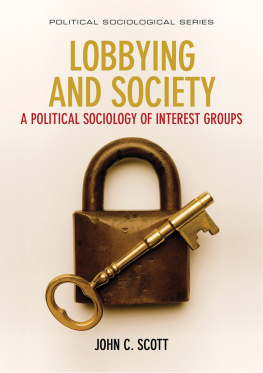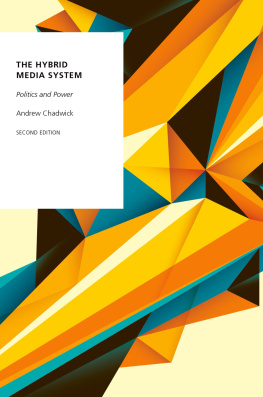Thank you for buying this ebook, published by NYU Press.
Sign up for our e-newsletters to receive information about forthcoming books, special discounts, and more!
Sign Up!
About NYU Press
A publisher of original scholarship since its founding in 1916, New York University Press Produces more than 100 new books each year, with a backlist of 3,000 titles in print. Working across the humanities and social sciences, NYU Press has award-winning lists in sociology, law, cultural and American studies, religion, American history, anthropology, politics, criminology, media and communication, literary studies, and psychology.
Soundbitten
NEW YORK UNIVERSITY PRESS
New York and London
www.nyupress.org
2011 by New York University
All rights reserved
Substantial portions of originally appeared in
Social Problems, vol. 57, issue 4, under the title Reporting Conventions:
Journalists, Activists, and the Thorny Struggle for Political Visibility.
References to Internet websites (URLs) were accurate at the time of writing. Neither the author nor New York University Press is responsible for URLs that may have expired or changed since the manuscript was prepared.
Library of Congress Cataloging-in-Publication Data
Sobieraj, Sarah.
Soundbitten : the perils of media-centered political activism / Sarah Sobieraj.
p. cm.
Includes bibliographical references and index.
ISBN 9780814741368 (cloth : alk. paper) ISBN 9780814741375
(pbk.: alk. paper) ISBN 9780814783863 (e-book)
1. Public relations and politicsUnited States. 2. Mass mediaPolitical aspectsUnited States. 3. Communication in politicsUnited States. I. Title.
JA85.2.U6.S66 2011 324.730973dc22 2011006177
New York University Press books are printed on acid-free paper, and their binding materials are chosen for strength and durability. We strive to use environmentally responsible suppliers and materials to the greatest extent possible in publishing our books.
Manufactured in the United States of America
c 10 9 8 7 6 5 4 3 2 1
p 10 9 8 7 6 5 4 3 2 1
Acknowledgments
THIS RESEARCH HAS been made possible by the kindness, support, and patience of many people to whom I am profoundly grateful.
First and foremost, I thank the inspiring activists and remarkably candid journalists who shared their experiences with me. The writing of this book had its ups and downs, but gathering the dataspending time watching these fascinating people do their work and listening to them share their storieswas one of the best experiences of my life. The bits of data I did not gather were expertly culled by my former research assistant, Elizabeth Kulik, who spent a summer carefully completing and evaluating the news archive described in .
This research received financial support from Tufts University and Initiatives for Women at SUNY Albany, and I also thank Sandra Sobieraj Westfall, who let me sponge off her expense account and wriggled me into all the good convention and debate spots, from parties and pressrooms to motorcades. Thanks to her I had great company and a really nice meal once in a while. Thanks also to my father, John McGuire, for allowing me to turn his home away from home into my own personal writing refuge. Writing there, with him, was wonderful.
I am incredibly appreciative of the time and care invested by the anonymous reviewers of this manuscript. When I read their reviews, it was apparent that I had hit the jackpot: the gift of being read closely by scholars at the top of their field. The book benefited tremendously from their insights, as well as from the guidance of Ilene Kalish at NYU Press.
I am also grateful to my colleagues in the Department of Sociology for making Tufts such a welcoming and pleasant work environment. Their collegiality, wit, and encouragement kept the work of writing from feeling isolating, and they reminded me that I would get there eventually. Many of them graciously read parts of this work or offered feedback during our departmental colloquia. Thanks in particular to John Conklin, who, even amid his responsibilities as department chair, provided extensive, detailed feedback on this manuscript. I am also deeply indebted to Jim Ennis, Paul Joseph, and Susan Ostrander, who talked some sense into me at a difficult time, and to Vickie Sullivan for helping me to find the balance that allowed this book to come to fruition. Thank you, thank you, thank you.
There have been several colleagues outside my departmenttoo numerous to name herewho provided feedback or guidance about writing and publishing. I thank Myra Marx Ferree, Tina Fetner, Dana Fisher, Bill Gamson, Dave Grazian, Kieran Healy, Doug McAdam, David Meyer, Joya Misra, Gwen Moore, Charlotte Ryan, and others who gave their time to help a newbie find her way. In particular, I am grateful to Ron Jacobs, whom I turn to for advice more regularly than is reasonable. If he were not right so often, I might leave him alone. Jeff Berry has also been an indispensable mentor. Although our work together has been on a different project, I have learned a great deal from working with him.
For the last five years I have been fortunate enough to be a part of a miraculous writing group whose members strike just the right balance of incisive critique, pointed questions, and enthusiasm. Thanks to the fantastic Chris Bobel (just typing her name makes me smile), Frinde Maher, Julie Nelson, Susan Ostrander, and Anna Sandoval for both their priceless Friday afternoon contributions to the evolution of this book and their friendship. Thanks also to former members Paula Aymer, JoAnne Preston, and Jyoti Puri, who helped me unearth what exactly it wasin all these datathat I had to say.
I must also acknowledge the funny and freakishly wise Tina Fetner for pointing me to the magic book and instigating an ongoing series of video chats about writing as a process, during which she, Jessica Fields, and I strategize about how to protect our writing time, even if it requires spreadsheets, odd hours, and Internet-blocking software.
Between chapters, I have enjoyed magnificent breaks that kept me sane, especially fabulous meals and bona fide relaxation at the farm with John, Brenda, and Maddie McGuire, who make everything feel special; holiday poker and virtual scrabble with Jeb McGuire; beach vacations with the Sobieraj family; and laughter with many friends, particularly Sue Aman, Melissa Burress, Tracy Holleran, Kristie Kapusta, Jenny Keys, Krista Siringo, Kristin Stainbrook, Heather Sullivan-Catlin, and Kristen Wallingford.
Constant contact with my mother, Laurie McGuire, meant that I had lighthearted breaks even in the heat of the writing. Her frequent calls to discuss pressing issuesgood deals, her grandchildren, leisure reading, and reality televisionkept me connected to her across state lines and, I think, to all that is best in life. Thanks, Mom, for everything, always.
Heather Laube deserves the key to some spectacular city for having the great misfortune of being both my closest friend and a sociologist, as it meant that she felt obligated to listen to me work through intellectual questions


